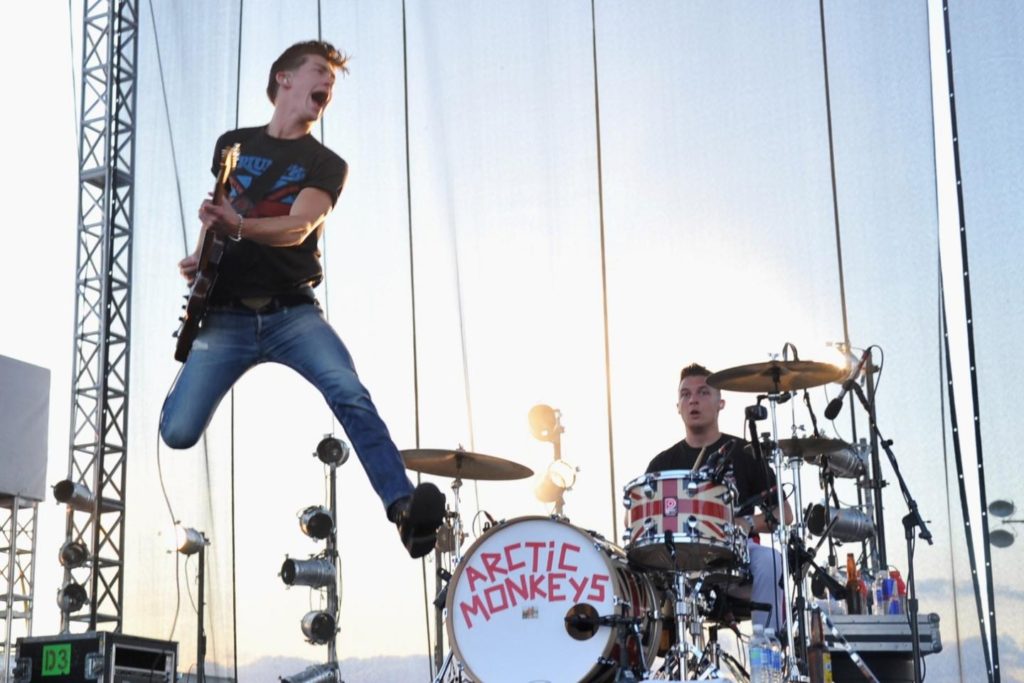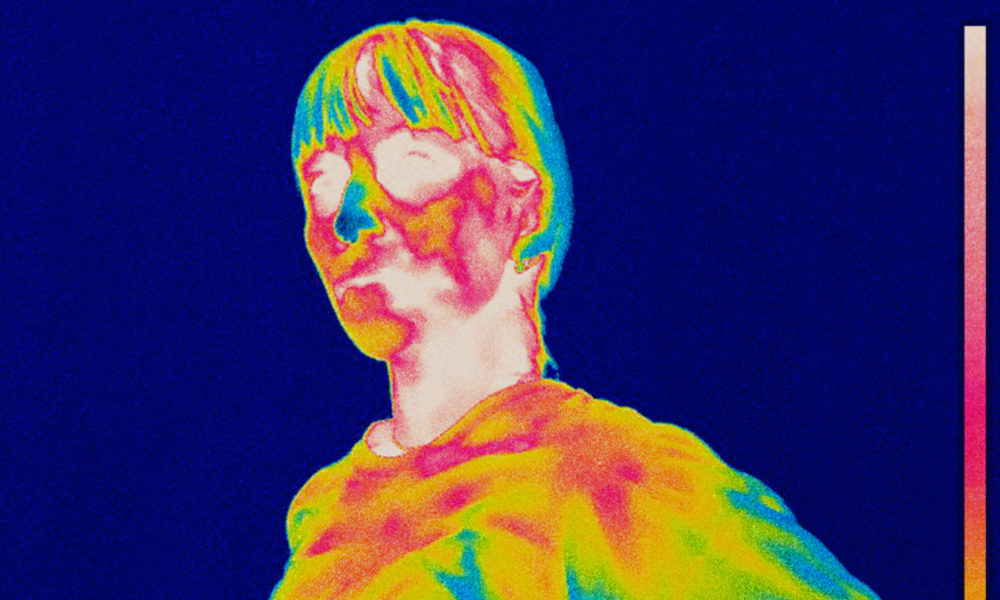Every year when the nice summer weather starts to hit I ask myself, “What will be my soundtrack for the next three months?” and as always, it comes through. While we can all sort of agree Childish Gambino hit the nail on the head with the flagship seasonal hit, “Feels Like Summer,” us members of the Press held onto a rainbow of other releases that made this summer feel our own. As the finally settled editor of the brand new music section, I am definitely ready to look back at our findings as we move into the fall. –Sarah Kimura
“Nasty” by Rico Nasty
by Dalvin Aboagye
In the saturated soundscape we’re living in, achieving crossover appeal has become a prerequisite for any sort of lasting success. For the most part, this jab at longevity works against the act in question, usually prioritizing what’s in instead of what’s authentic. At the risk of sounding snobbish, I look at the majority of the so-called Soundcloud crop with boredom as I watch their cookie-cutter personas haphazardly try to transcend labels. As a self-aware fan of the movement, even I have to admit the hits can be weak from time to time. Luckily, 21-year-old Maryland rapper Rico Nasty stands as the exceptions to this trend.
The DMV native’s June debut “Nasty” delivered the unfettered aggression and hypnotic hooks many of her contemporaries try to. The past year has seen her riding off the success of her 2017 single “Poppin’” with the momentum still going strong today. The record definitely has something for everyone. “In The Air” is a certifiable moshpit anthem that nails the punk vibes with support from BlocBoy JB. “Ice Cream” and “Hockey” show off her pension for hooks sprinkled with some much-appreciated adlibs. Her rambunctious spirit is as refreshing as it is necessary.
Her brand of self-described “sugar trap” is miles away from the gimmicky personas we’ve seen plastered on Twitter and Instagram feeds everywhere. She’s not here for the meaningless likes. At the same time she’s not one to leave anyone out. Some few quick picks of her songs added to your daily rotation will pull you into her orbit in no time. From punk devotees to even the most staunch rap purists, they’ll all come crashing down eventually.
“Tranquility Base Hotel & Casino” by Arctic Monkeys
by Isaiah Vallecillo
Who doesn’t love a good sci-fi story? Especially when it’s told by a British rock band. “Tranquility Base Hotel & Casino” is the sixth album released by the Arctic Monkeys and their first concept album. It tells the story of the eponymous casino, a hotel on the colonized moon in a distant future. Take a shot every time lyricist and frontman Alex Turner mentions outer space.
I’ve heard many long-time Arctic Monkeys fans, like myself, complain about the album, calling it “glorified elevator music.” While I agree the slower rhythms and melodies are underwhelming compared to their previous albums, this album is an unabashed detour from the “old Arctic Monkeys.” The Arctic Monkeys are notorious for changing up their sound with each album, experimenting within and pushing the boundaries of their genre. In an interview with Zane Lowe for Beats 1 radio, Turner mentioned that during the writing process, he couldn’t write anything new without being derivative of past works. For this album, they wrote around the piano, rather than the guitar, ultimately getting them out of their writing rut and deviating from their past indie-rock sound.
After a five-year hiatus, Turner begins the album by greeting his fans with an honest, “I just wanted to be one of the Strokes…” a telling introduction and a foreshadowing to the rest of the album. I understand, as an old-school Arctic Monkeys fan, that it’s easy to write off “Tranquility Base Hotel & Casino” as a flop with just one listen, but pay closer attention to the lyrics and you might change your mind. I find “American Sports” and “One Point Perspective” to be the biggest earworms, while songs like “Ultracheese” and “Star Treatment” demonstrate the clever lyricism that makes the Arctic Monkeys so beloved amongst their fans. The album is jazzy and elusive, with long-spoken monologues a characteristic of each song. In my opinion, this album has been unfairly dismissed by both older and newer fans alike. If you’re looking for new music with a change of pace, give it a listen.
“Wide Awake!” by Parquet Courts
by Joe Amendola
For a genre so intensely obsessed with its past, rock music has shown little interest in recreating their iconic, politically-charged masterpieces of yesteryear. The “London Callings” and “Frankenchrists” of the ‘70s and ‘80s have been cast aside in favor of the more washed-out, sonically sprawling opuses of a “Grizzly Bear” or “Tame Impala” — bands who tend to be more interested in creating an all-encompassing audible experience than righteous invective against the institutions of global empire. This change could have been brought about for any number of reasons. Perhaps bands felt as if the political should’ve been left under the purview of rap music. It is perfectly understandable to assume that musicians from more marginalized communities could do a better job of articulating a radical statement than, say, a trio of white art school kids whose parents have Wikipedia pages. Or maybe it was a form of collective, residual embarrassment left over from the 8th grade bathroom graffiti that was Green Day’s 2004 album “American Idiot.” Take your pick, really.
But on May 18, the Brooklyn-based, Texan-bred punk band Parquet Courts released their fourth album, “Wide Awake,” a sublime manifestation of everything the genre had been so sorely lacking for a generation: sincere but playful, serious yet fun. The album opens with the aggressive gutpunch of “Total Football” and closes with the sweet and hopeful “Tenderness” — a thrilling journey through the mind of a hyper-thoughtful millennial living through the age of content overload. The album contains a bottomless well of memorable lyrics, with pointed political messaging like “collectivism and autonomy are not mutually exclusive!” in “Total Football.” “Wide Awake!” Is also equipped with heartbreaking lyrics about growing up around economic precarity and addiction, like in “Freebird II,” when lead singer Andrew Savage sings:
“When I think of you, I see a person who
Hasn’t existed for a long time
Before you started using, before I started choosing
To do the same thing for the same reasons”
The album manages to glide through several pressing issues — climate change, class divides, MTA delays — without coming across as overbearing and preachy, a rare feat in the age of irony poisoning, where sincerity is suspect and everyone is overly cynical of other people’s intentions. Parquet Courts’ “Wide Awake!” may have come in an era of dwindling prominence for the genre at large, but it has quickly established itself as the perfect album for a generation whose brains never pushes the brakes.
“Youngblood” by Five Seconds of Summer
by Deanna Albohn
This past June, Australian pop-rock band 5 Seconds of Summer debuted their highly anticipated third album “Youngblood.” It debuted at #1, beating out Beyonce and Jay-Z’s album “Everything Is Love,” earning the band their third consecutive number one album. They strayed from their previous pop-punk roots to a wider alternative rock sound for this album. They incorporated more piano and keys, while also adding tons of unique vocal and instrumental effects. The band stepped out of their comfort zones with this album, and the results speak for themselves.
The title track opens up the album with a heavy bassline and sets the mood for the remaining tracks. You can hear the ‘80s rock influences in tracks “Talk Fast” and “Moving Along.” The album tells the story of a first heartbreak and all the raw emotions and feelings that come with it. The songs “Lie To Me,” “Ghost Of You” and “Why Won’t You Love Me” all convey the desperate feelings of clinging to a love that is no longer there.
The new direction 5SOS takes in this album gives them a more mature sound, and leads them away from the days of their teen angst-ridden pop punk era. Their three-year hiatus gave them time to grow up, live life and produce an album that millions of fans across the globe could relate to.
As a longtime fan of 5SOS, this is definitely my favorite album of theirs, if not my favorite album of all time. I love that I was able to grow up with them and watch them evolve. I find the lyrics to be relatable, and have to hold myself back from dancing along with the music in public.
“Mamma Mia! Here We Go Again (Original Motion Picture Soundtrack)” by the cast of “Mamma Mia! Here We Go Again”
by Sarah Kimura
On September 3, the ever-iconic Cher tweeted, “Was Wondering If We Should HANG ON 2 SUMMER & KEEP DANCING …OR ….SOB OUR WAY INTO FALL.” Who wasn’t feeling this sentiment? I feel that each season, month, week, day, hour, comes with a piece of news further confirming the incomprehensible reality of the hellscape we live in. No wonder a film like “Mamma Mia! Here We Go Again” would be the catharsis of a tense summer leading up to November’s midterm elections.
Yeah, I know, all of these songs are just musical-inflected regurgitations of ABBA hits, but when they’re recontextualized into a corny narrative? The suburban New England mom in me is quaking in her North Face vest! To be fair, I still haven’t seen the movie, but I have seen the first, and I am sure it’s the same cheese with a bigger budget. But I literally don’t care as long as I have Cher’s cover of Fernando and Pierce Brosnan singing anything whatsoever, because this film is just an excuse for us to celebrate ABBA once again.
In all seriousness, can you really deny the beat of the tambourine? When the soundtrack dropped I felt the immaculate joy of letting loose, and talking about it with my friends brought the same sincere twinkle in the eye. Letting go of my fervent self-seriousness while listening to this album brought me the gift of a serendipitous moment at a party. We all ended up screaming, “You can dance, you can jive, having the time of your life!” in disheveled party costumes, all feeling the fictional bliss of playacting a life where the biggest worry is, “Which one of my three dads is my real dad?”
We are all constantly being reminded of how hard life actually is; sometimes the relief to that burden is forgetting about it all for a second when we unabashedly reach for the high note in “I Have a Dream.”
“Swimming” By Mac Miller
by Louis Marrone
What can be said about Mac Miller that hasn’t been said already? With his tragic passing, there is something rather sentimental and heartbreaking about his would-be final album, “Swimming.” I’ll be honest in saying that unlike many, I didn’t grow up with Miller’s art. I initially dismissed Miller as, simply put, another white rapper. Another failed experiment, walking in the footsteps of Eminem, and bound to be as much a letdown as Macklemore was post-“The Heist.” But what made Miller so interesting was the authenticity. Miller knew who he was, and never tried to be anything else. He didn’t strive to be a stereotype, nor did he seek to step outside his lane.
Also great is the dynamic between two personalities that lie within him. It’s a battle of the heart and mind — a man striving for stability yet yearning for the sweet embrace of satisfaction. Through songs such as “Swimming Pools,” Miller talks about the amazement he feels being stuck in the oblivion, supposedly having all the time in the world. However, you feel the conflict between desires not only in the lyrics, but in the song’s beat switch about halfway through, going from lush yet fast and hard, to smooth and subdued. The whole album has this feeling to it, and it makes it nothing short of outstanding yet heartbreaking.
“High as Hope” by Florence + the Machine
by Taylor Beglane
This is not the Florence we’re used to. Long-famed for her bombastic vocals and the church-choir atmosphere of the three albums preceding “High as Hope,” Florence Welch turned the dial down here for a quiet, pensive reflection dominated by slow pianos and violins.
Welch plumbs the depths of her past in penance, assisted mostly through strong, whisper-or-wail vocals and a clapping choir. Welch ruminates on mistakes made in her youth in “Grace” and worships the influence of the women in her life in rhythmic “Patricia.” And the album’s standout, “Hunger,” elevates a teenage eating disorder to the universal craving each person feels for love and belonging. If — to borrow a metaphor from Kyle Anderson of Entertainment Weekly’s “Ceremonials” review — “Lungs” was a shrine and “Ceremonials” was a cathedral, then “High as Hope” is a bedside prayer, intimate as the clasped hands and whispered devotion of a woman in solitude.
The album’s tone is best reflected in the cover art. There’s no artsy mirrors or lungs, no greyscale grimness; it’s just Welch, standing in a yellow dress before a painted wall and gazing expectantly at the listener. Flowers dangle from her limp hand. Like her new music, she’s casual, open and human.




Comments are closed.